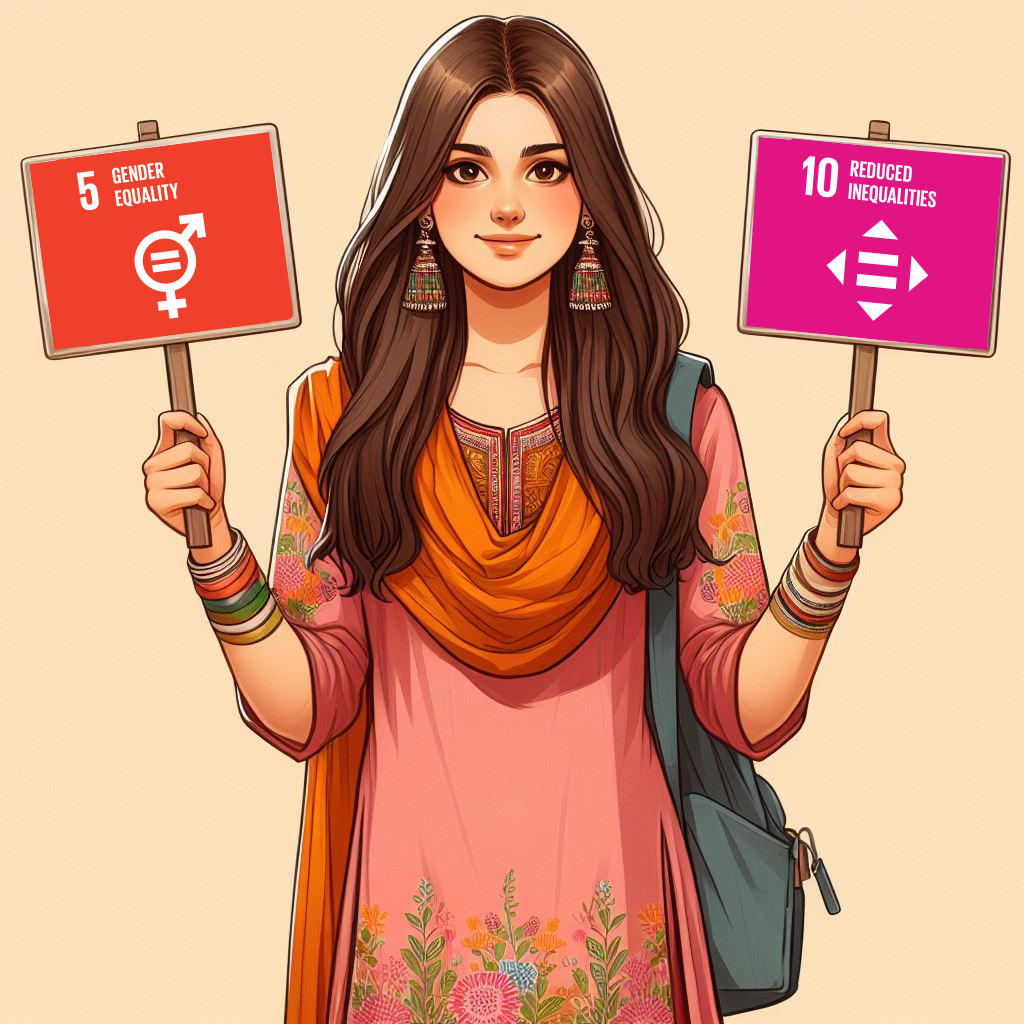Poor families across Bangladesh have been hit hard by the COVID-19 crisis, as many parents have lost their jobs and livelihoods. The pandemic continues to spread in a country where even washing your hands to avoid contamination is a luxury and food is already scarce. Only 15 percent of Bangladeshi workers earn more than US$ 6 a day. The economic shut- down sparked by COVID-19 threatens millions of livelihoods in the country imminently. On March 26th, when the government called for a country-wide lockdown, 10 million rickshaw drivers, day laborers, factory workers, maids, and others raced to get home.
Like other countries, Bangladesh is in complete lockdown. The government has closed down many industries including the garment industry which is a key employer for women, and it has imposed restrictions on gatherings and travel. The many women who worked in these industries are now unemployed. Some women manage to work from home, but this is in addition to the extra unpaid care work they must now undertake. Even before the pandemic struck, women generally carried out three times as much unpaid care work in the home as men. Now, formal sector female employees with children are balancing work (if they still have it), childcare, homeschooling, elder care, and housework. Female-headed households are particularly vulnerable. Some women who work as freelancers or work in the ICT sector have been less affected by the pandemic as they have the skills to reach out to a global market through the internet.

COVID-19 has adversely affected our work as we had to close all our physical centers which women attend to learn technology skills and get e-commerce support. We adapted our training to online methods, but this brought its own challenges as some students could not afford to buy mobile data. Even for those who could afford it, the quality of the inter- the net connection was very poor. In addition, some mobile data operators increased the price of mobile data, making it unaffordable for many girls. The pandemic left most of our projects on hold.
We also decided to change our response to the CO- VID-19 pandemic because in rural Bangladesh most of our students come from low-income families. As many of our student's parents had lost their jobs during the pandemic, they could no longer afford to support their children's education. In the face of these difficulties, we supported 3,359 families through our Food for All initiative by giving them one month's worth of food items.
With our physical training centers closed, we developed an online e-learning platform for our community, www.
mashtor.com, which has enabled us to continue our training classes for 380 students.
We believe that universal access to knowledge and education should be a right and not a privilege and recognize that bright, creative and ambitious people often lack the resources or cannot access the help they need to fulfill
their potential. Equally, there are people who wish to share their knowledge and skills but lack the channel and tools to connect with others. Therefore, another aim of Mashtor.com is to provide a space for these connections to be made. Moreover, this platform can help generate income for participants, and some have already started to earn money through the platform, so it is a useful tool for both students and teachers.
Through its intuitive and integrated online classroom, teachers are able to motivate students and help them to develop their potential and achieve their goals. The advantages of the platform are that connections can be made instantly, and knowledge can be shared and acquired in real-time to create a community across geographical boundaries.
We also introduced a dedicated website for our community of businesswomen in which we could sell our entrepreneur's products through our social media platform. This has given hope to these businesswomen who were badly affected by the pandemic. Small and mid-sized enterprises are doing well now through the use of mobile data and technology as broadband is not yet available in our rural areas. We have developed a sustainable model for the local women entrepreneurs through our online marketplace,
https://womenine-commerce.com, since these women and girls mainly use Facebook-based commerce.
Although Bangladesh is a developing country, during the COVID-19 pandemic, we have capitalized on new technologies to help women and girls to adapt and cope with the new situation in keeping with our motto: "Empowerment through technology".
Nila Khaleda Achia is a computer engineer with more than 13 years of experience in the IT industry and is the Founder of Women in Digital.
![Women’s tech social[..]-Image](https://www.womenindigital.net/uploads/blogs/1643003940.jpg)
![Digital Innovation Challenge[..]-Image](https://www.womenindigital.net/uploads/blogs/1765313383.jpg)
![When Asking for[..]-Image](https://www.womenindigital.net/uploads/blogs/1763692658.jpg)
![Interview with Lead[..]-Image](https://www.womenindigital.net/uploads/blogs/1763583911.jpg)
![Empowering Change: Women[..]-Image](https://www.womenindigital.net/uploads/blogs/1753248406.jpg)

![Online Violence Against[..]-Image](https://www.womenindigital.net/uploads/blogs/1667978755.jpg)
![Cyber Security Awareness[..]-Image](https://www.womenindigital.net/uploads/blogs/1663837531.jpg)
![Winners of UNDP[..]-Image](https://www.womenindigital.net/uploads/blogs/1643004618.png)
![Blockchain Training! Training[..]-Image](https://www.womenindigital.net/uploads/blogs/1643004319.png)
![Women’s tech social[..]-Image](https://www.womenindigital.net/uploads/blogs/1643003940.jpg)